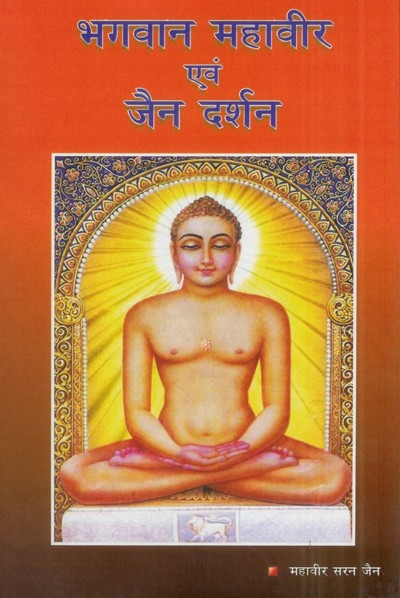There are eight types of karmas from the point of view of the nature (svabhāva) of karma. Among these sentience obscuring, perception obscuring, delusion producing and obstructing - these four karmas are directly soul attacking/killing karmas (ghātīya). Remaining four karmas are not so harmful karmas and do not hide the main qualities of the soul.
Question arises that why this is stated that the passions like attachment and aversion of the soul are generated by other agency. What is the importance of rise of the karma? The reason is this that since time immemorial the jīva is caught in the quagmire of wrong views and understands wrongly that self and other is the same and has been dependent on other for self-welfare. That is why; the extrinsic power is generated in the jīva. The relation of self and other is the instrumental (naimittika) relation. In order to emphasize over the wrong assumption, from conventional point of view, generally it is stated that self and other are one and the passions like attachment and aversion are generated through the other. From conventional point of view, one substance becomes instrumental in the functioning of other. And only from conventional point of view, the material categories get transformed due to force of karma generated by the passions of the jīva. Similarly, jīva also transforms being influenced by the attachment and aversion on the basis of material karma. The medium of motion assists jīva at the time of its movement. That is why; there is co-operative importance of the assistance. If the jīva is not influenced through emotions created by attachments then it is quite sure that even the most bulgur contexts can never make karmas stick to the soul. Only attachment and aversion are seeds of karma. The root of the seed grows from deluding karma. The soul that does not perform any activity from core of heart being influenced by attachment and aversion that does not bring any new karma. As long as fermentative emotions exist in the soul till then the karmas come to stick to the soul. When the soul of its own accord hurts its perception attributes i.e. does not give full vent to its perceptional sentience, the karma passively instrumental to this imperfect perception is called perception obstructing karma i.e. Darshanavarni karma. With the fruition of karmas this being indulges in imperfections like delusions, attachments and aversions. These are psychic karmas. These delusions etc., the passive causes of karmic matter, get associated with our souls. They are called material karmas. Originally karmas are of eight kinds, of these, Sentience obstructing, Perception obstructing, Delusion producing, and Deprivation are destructive karmas and delight and anguish producing karmic matter, life determining karmic matter, physique making karmic matter and status determining karmic matter are called non-destructive karmas. Those karmas that are instrumental in destroying intrinsic qualities of the soul are called destructive, and those that do not do so are undestructive karmas. When the soul of its own accord hurts its consciousness attribute i.e. does not give vent to its sentience, the karma indifferently instrumental to this obstruction of full expression of sentience is called sentience obstructing karma i.e. Gyanavaran karma. This will be dealt in detail later in the article. (1.10)
| घाति कर्म destructive karmas (karmas that are instrumental in destroying intrinsic qualities of the soul) | 1. Jñānāvaraṇīya karma ज्ञानावरणीय कर्म (Sentience obstructing karma) | It veils our Consciousness that is the state of being aware of an external object or something within oneself. |
| 2. Darśanāvaraṇīya karma दर्शनावरणीय कर्म (Perception obstructing karma) | When the Soul of its own accord hurts its perception attribute i.e. does not give full vent to its perceptional sentience, the karma passively instrumental to this imperfect perception is called perception obstructing karma i.e. Darśanāvaraṇīya karma | |
| 3. Mohanīya karma मोहनीय कर्म (Delusion producing karma) | It deludes the soul by distorting its faculty of enlightened perception and right conduct | |
| 4. Antarāya karma अंतराय कर्म (Obstructing karma) | It causes obstruction in operation of the inherent powers of the soul. | |
| अघाति कर्म non-destructive karmas (karmas that do not instrumental in destroying intrinsic qualities of the soul) | 5. Vedanīya karma वेदनीय कर्म (delight and anguish producing karmic matter) | It causes the feelings of pleasure and pain. |
| 6. Āyu karma आयु कर्म (life span determining karma) | It determines the soul to have a fixed term of life in a particular realm of its worldly existence. | |
| 7. Nāma karma नाम कर्म (physique determining karma) | It causes the attainment of different material objects related with the body in the four realms of living beings (viz. hellish, animal, human, celestial) | |
| 8. Gotra karma गोत्र कर्म (status determining karma) | Due to this karma, one comes to possess high or low status in society. |
-
Jñānāvaraṇīya karma ज्ञानावरणीय कर्म (Sentience -obstructing -karma) is also translated in some texts as knowledge obstructing karma. Knowledge is of five kinds: sensory, cognition, literal knowledge, extraordinary knowledge, absolute knowledge. Absolute-knowledge-obstructing karma keeps one away from attaining omniscience. In general sense, we can translate ज्ञानावरणीय कर्म as Knowledge-obstructing-karma but in fact the proper translation of ज्ञानावरणीय कर्म is Sentience -obstructing -karma. When the soul of its own accord hurts its consciousness attribute, does not give vent to its sentience, the karma passively instrumental to this obstruction of full expression of sentience is called sentience obstructing karma.
-
Darśanāvaraṇīya karma दर्शनावरणीय कर्म (Perception obstructing karma) has been classified in some texts into 09 subclasses. Five subclasses related to five kinds of sleep and the remaining four subclasses related to perception through eyes, perception through other senses, extrasensory perception and absolute perception. In the context of liberation from karmas,Darśanāvaraṇīya karma(Perception obstructing karma) means absolute-perception-obstructing-karma. When the soul of its own accord hurts its perception attribute, does not give full vent to its perceptional sentience, the karma passively instrumental to this imperfect perception is calledDarśanāvaraṇīya karma (perception obstructing karma).
-
Mohanīya karma मोहनीय कर्म (Delusion producing karma) - When this being forgets one’s self, regards others as his own, and is non-attentive towards one’s own self, the karma then present is called Mohanīya (Delusion). Mohanīya is most dangerous, out of all the eight karmas because `moha' is the root cause of all Kasayas (passions). It is also most difficult karma to destroy. If Mohanīya karma is destroyed fully, the self becomes free from all Kaṣāyas and liberation is assured. Two main categories of Mohanīya karma are - Darśana-mohanīya (Perception delusion) and cāritra-mohanīya (conduct deluding) karmas. With their subtypes there are 28 sub-types of Mohanīya karma.
-
Antarāya karma अंतराय कर्म (Obstructing karma) - The fruition of these karmas creates obstructions to giving donations, obtaining gains, and enjoying things. This karma does not allow the infinite energy and potency of the living being to appear.
-
Vedanīya karma वेदनीय कर्म (delight and anguish producing karma) - Vedanīya, delight and anguish producing karmas can be of two types: sātāvedanīya i.e. pleasant and asātāvedanīya i.e. unpleasant feeling producing karmas.
-
Āyu karma आयु कर्म (life span determining karma) - The āyu karmas are the life span determining karmas and they determine the next destiny or reincarnation of a soul. Accordingly, as per the next reincarnations lifespan determined, a soul takes birth in hell, heaven, animal kingdom or as a human.
-
Nāma karma नाम कर्म (physique determining karma) - The Nama karmas or physique determining karmas are of two types - asubha and subha Nama karmas i.e. auspicious and inauspicious karmas.
-
Gotra karma गोत्र कर्म (status determining karma) - The gotra karma or status determining karma is of two types:
- Nicagotra karma: Praising oneself, defaming others, hiding others’ merits and finding fault in others are the causes of low status or low class.
- Uccagotra karma: Praising others, displaying one owns shortcomings, ignoring one’s own merit along with humility and modesty causes the inflow of high status determining karma.
- Nicagotra karma: Praising oneself, defaming others, hiding others’ merits and finding fault in others are the causes of low status or low class.
 Dr. Mahavir Saran Jain
Dr. Mahavir Saran Jain
